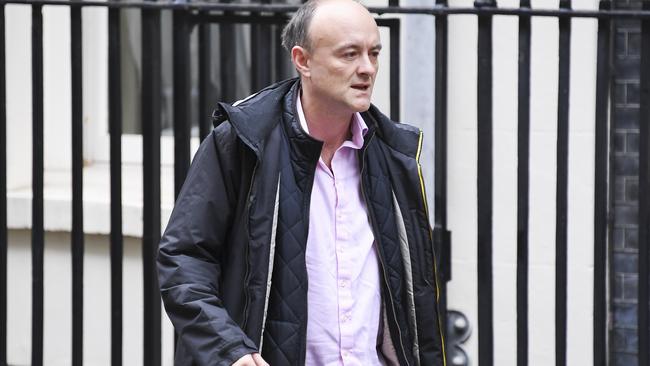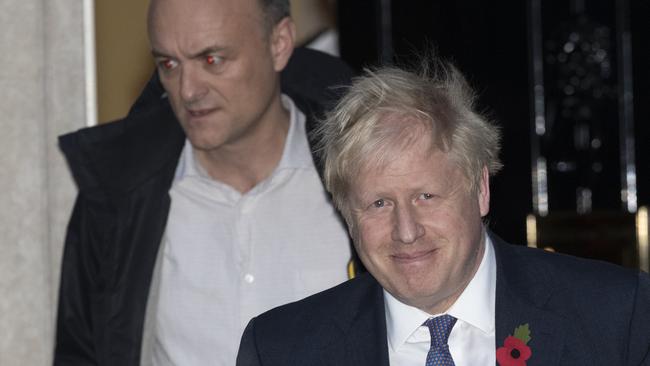Questions over Russia links of Boris Johnson adviser Dominic Cummings
Questions raised about Dominic Cumming’s ties to Russian political, intelligence and security personnel.

Questions have been raised about Boris Johnson’s most senior Adviser and his historic ties to Russian political, intelligence and security personnel.
Dominic Cummings, who directed the Vote Leave campaign and has been Mr Johnson’s main lieutenant since he became Prime Minister, was in Russia between 1994 to 1997. His current security clearance within government has been questioned by the Labour opposition.
Labour’s concerns come at a time when Jeremy Corbyn’s support for the Kremlin during the Novichok poisoning attack in Salisbury is being highlighted by the Conservative campaign.
Shadow foreign secretary, Emily Thornberry, has written to Tory foreign minister Dominic Raab, MI5, MI6, the head of the civil service, and the Tory rebel Dominic Grieve, who is the chair of the intelligence and security committee, with questions about Mr Cumming’s security clearance and his access to top level intelligence and files.
READ MORE: Farage declares; I won’t stand | Expat Brits ‘voteless’ if not on roll | Red wall seats will decide election | All Brexit news, analysis
A whistleblower approached the Labour party with alleged “serious concerns’’ about Mr Cummings’ connections, which he forged in Russia immediately after finishing his university studies.

Ms Thornberry said: “We make no claim to know the veracity of their claims,’’ but added: “I feel duty-bound to put to you the concerns raised with the Labour front bench by a whistleblower whose motives we have no cause to question’’.
In the letter, Ms Thornberry wrote about Mr Cummings: “I would assume that – given the seniority of his position and the influence it gives him over decision-making at the top of government – that he was subject to the highest level of developed vetting and that – as a result – he is able to study ‘top secret’ intelligence material and attend meetings on the UK’s military and security operations overseas.’’
She queried Mr Cummings’ relationship with academics when he was studying at Oxford University, if they had discussed working to support the post-communist Russian government and if he was questioned during the vetting process about his relationships with Conservative Friends of Russia.
Ms Thornberry also asked: “Was Cummings questioned about the purpose of his three-year period of work in post-communist Russia between 1994 and 1997, including relationships with figures in Russian politics, intelligence and security?’’
The Cabinet Office said: “We do not comment on individuals’ security clearance.”




To join the conversation, please log in. Don't have an account? Register
Join the conversation, you are commenting as Logout